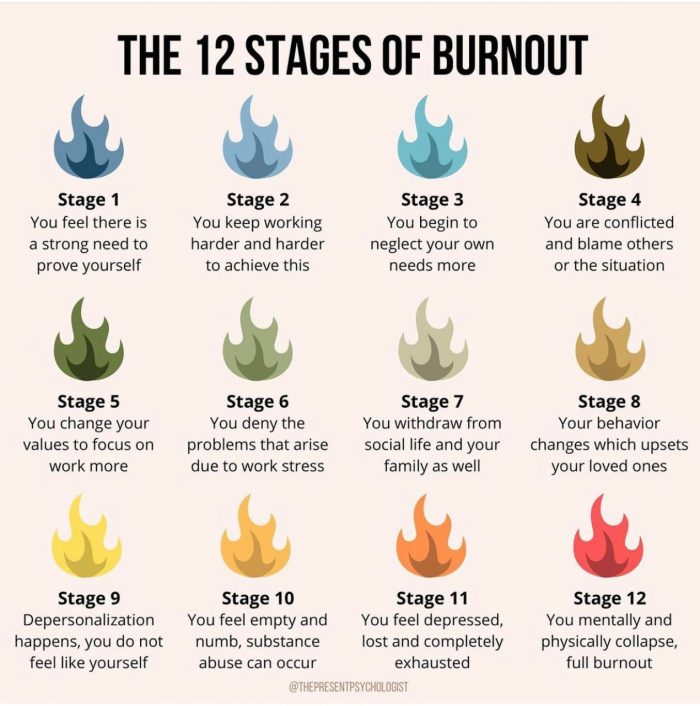
Burnout is a serious condition that can cause long-term damage to your mental and physical health. It’s important to know what symptoms to look for in yourself, so you can get the help you need before things get worse.
But how do you know if you’re experiencing burnout? Here are 12 stages of burnout and how they affect your health:
It’s important to remember that self-awareness and self-compassion are not signs of weakness; they are evidence that you’re on your way to healing. The first step toward getting back on track is taking time off from your responsibilities so you can focus on caring for yourself. If you feel like burnout has taken over, the best thing to do is take a vacation or delegate some of your work responsibilities to others. If that’s not an option, even taking a break for just one day will help get you back into the mindset of doing what needs to be done without burning out at the same time.
After taking some time off and rejuvenating yourself, it’s important to make a list of all of the tasks that need doing and decide which ones are essential and which ones can be put off until later. This may require asking family members or friends if they’re willing to lend a hand with certain tasks while also letting them know how much help they’d like them to provide; however, if someone isn’t available right now then there are plenty of other ways find assistance with everyday tasks like cleaning up around the house or organizing paperwork into folders by date range rather than topic (which would require going through everything).
